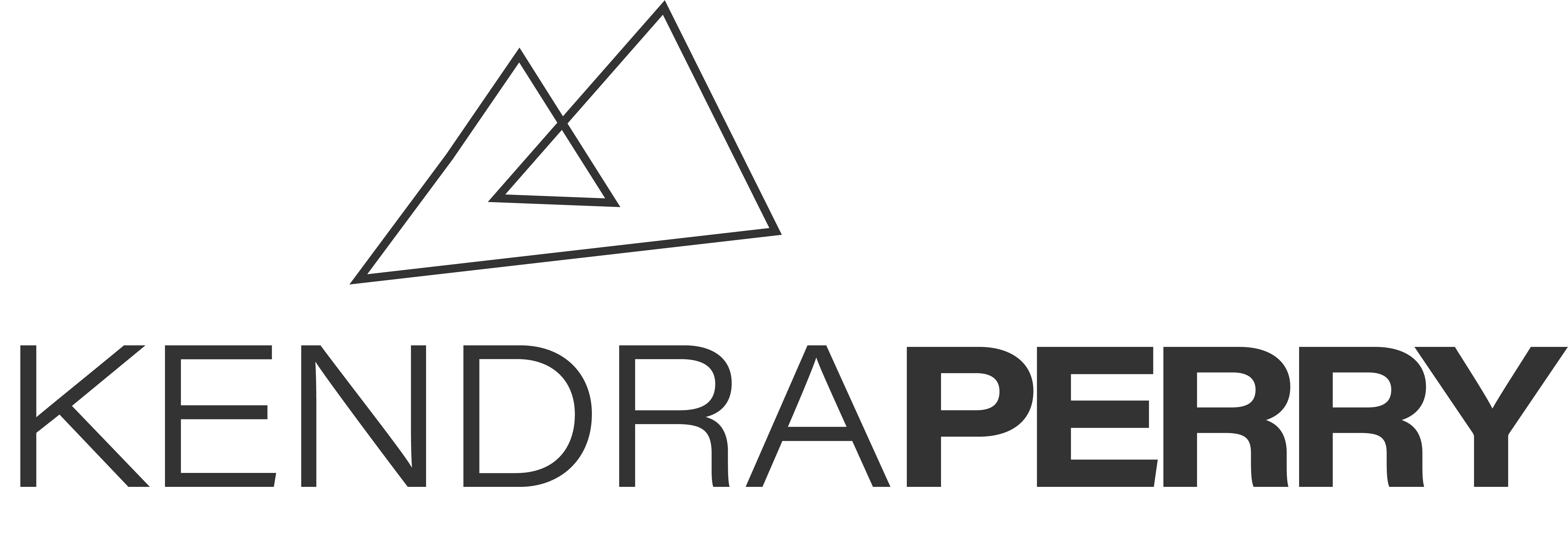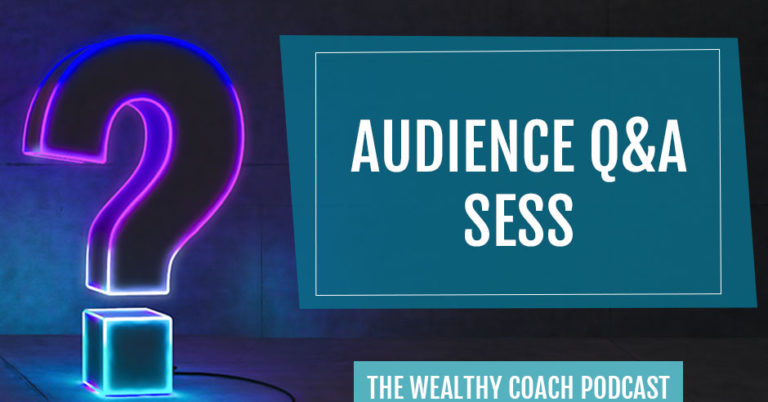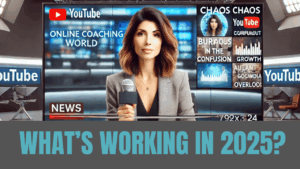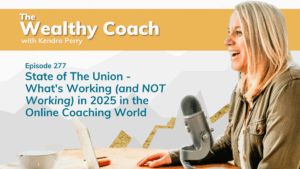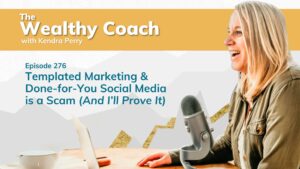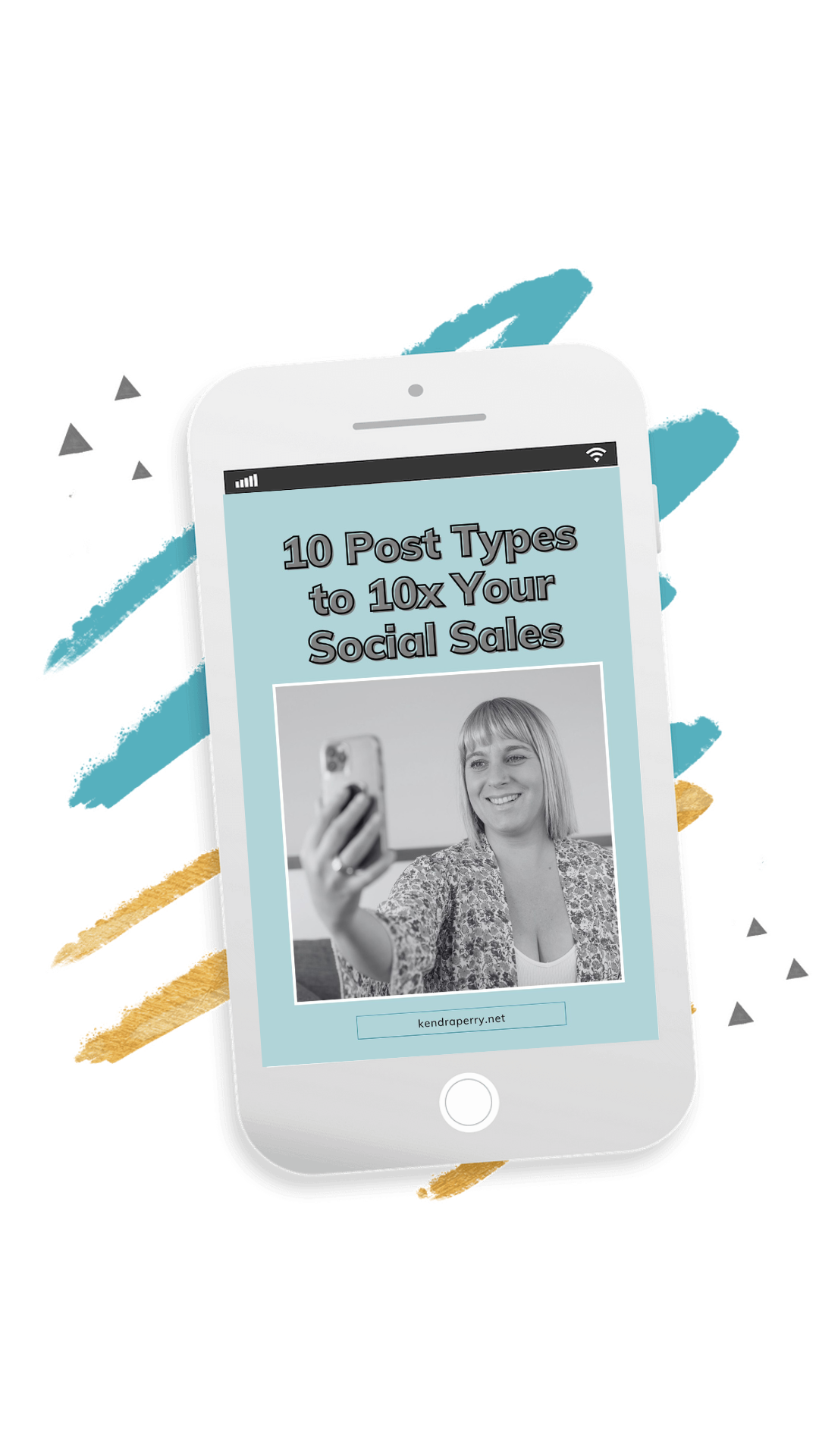Welcome to today’s special Q&A episode where listeners have sent health coaching questions for your host Kendra Perry to answer. Learn how to build the confidence to start. Discover whether or not you need health coach certification to be a health coach. Find out when you can start doing live webinars and if there are any risks involved. Learn all the answers and more in today’s Q&A session with Kendra Perry.
—
Listen to the podcast here:
✨Audience Q&A Sess✨💰
It is episode 100 and I’m so excited that I have done 100 episodes. I started the show back at the beginning of 2020. Back then, I called it the High On Business Podcast but I rebranded about six months later to The Wealthy Coach because that felt more impactful and of what I’m trying to help you achieve. I have been posting an episode a week ever since.
If you are brand new to the show, lucky you. You have 100 episodes that you can go through. They are packed with so much good information and value. I want to say to all of you who have left me reviews over the past couple of years on iTunes, I truly appreciate you. That has helped me get out in front of more people. If you do like this show and you ever want to leave me a review, I would more than appreciate it. I read every single one of them and you can do that on iTunes.

My Princess Cat
In celebration of the 100th episode, we are going to do an audience Q&A. I have gathered questions that you have sent me on Instagram and I’m going to get them all answered on this Q&A show. I’m very excited to go through that. On another note, I have to tell you about something amazing that I learned about. As you know or maybe don’t know, I live in Canada in a ski town. I live at 800 meters on top of a mountain. I get a lot of snow here and we have a cat.
We’ve got this cat from the SPCA. It was a rescue cat. She had come from an elderly couple and she was an indoor cat. We were the first people to let her go outside. In summer, she goes outside but she is a bit of a princess. She does not like being cold and fair enough. Now that there’s a ton of snow at our house, and it’s quite cold outside, she does not go outside and has been so bored.
When she is bored, she starts doing all those weird cat things. She starts jumping around, digging in plants, hopping all over the house, and acting completely psychotic. We love her and it’s hilarious but I can tell that she is very bored and under-stimulated. It came to my brain that my friend, Shanae, had mentioned Kitty TV. She said that she had let her cats watch it because she lives outside San Francisco and has cats in the city.
She has this Cat TV because she is like, “They need to get stimulated.” At that time, it was summertime. I was like, “My cat is very stimulated because, normally, my cat is out for 4 to 5 hours a day in the forest.” Now, I’m like, “In the wintertime, she seems super bored and under-stimulated.” I googled Cat TV YouTube and found this hour-long channel, which are birds on a stump and squirrels jumping around. She has been glued to that thing for hours. I put it on for her at 8:00 AM. It’s 1:30 in the afternoon and she is still watching it. It’s really good.
If you have a bored cat, maybe you have an indoor cat or maybe you live in a winter climate like me and your cat gets fat, lazy, and bored in the winter, I highly recommend Cat TV. It’s hilarious. She is staring at it. She swats at the screen every now and then. The stimulation is good for you or good for her because, normally, she sleeps all day. It’s good for her brain. I wanted to pass that along to all you cat moms and cat dads out there. Kitty TV might be very transformational for your cat.
Confidence To Start?
You’ll never start with confidence because that’s the last thing that’ll come in any learning process.
Let’s dive into the Q&A. The first question is, “How do I get the confidence to even start?” This is a great question because normally when you are brand new and starting, taking that step to even start can be scary. When it comes to starting, you have to do it. If you are feeling blocked towards doing that, then you have to dive a little bit deeper into yourself because that is coming from fear. Maybe it’s coming from fear of failure or judgment.
It’s probably triggering something from your past. Maybe insecurity from high school or even as deep as a childhood wound but something is preventing you from moving forward. The thing is, a successful business comes from consistent action. You have to take action. You have to test. You have to take the emotion out of it, tweak and do the test, and figure out what works. Until you start, nothing is going to happen.
Something to know is nobody creates this perfect business on the backend. It’s like behind the scenes, they create this perfect business. They launch it, and it’s perfect and ready to go. It’s not like that. A business comes from testing. When you first start, it’s going to be the worst of what you ever put out there. That’s the honest truth. If you go back and look at the stuff that I first put out there, it’s probably the worst of what I have ever done. I have evolved. The only way that you can evolve is to start.
My advice to you is to start slow. Maybe it feels like a lot to do everything but start posting on Instagram or social media. Start talking about what you are doing as a health coach and what you are passionate about. Start to share a little bit about what you love about health coaching or wanting to be a health coach, or health and wellness. Get your feet wet. You don’t have to jump into the deep end right off the bat. Some people like to do that. That’s how I like to do things but maybe that’s not you and it’s okay to start slow.
There’s something I want to say in regards to, “How do I get the confidence to even start?” You will never get the confidence to start because confidence is the last thing to come in any learning process. You can imagine that the first time you swam, you didn’t feel confident. There’s not a whole lot you can do to feel confident swimming for the first time. You can read all about it. You can read the books, watch YouTube tutorials, and ask people questions, but in the end, you have to get in, try to swim and be okay with the first time you try to swim. You are probably not going to swim that well.
Something you can do is to have support in place. Maybe the first time you swim, you are not going to jump in the deep end with no flotation. Maybe you are going to put on those cute little floaties in your arms. You are going to use a life jacket or a little flutter board and start slow. It’s okay to put training wheels on.
The other thing, especially if you learned how to swim as a kid, it’s unlikely that your parents threw you into the pool and told you to swim. They were there to support you. It can help to invest in mentorship, in someone who can help you. A lot of it is you don’t even know what to do or where to start but if somebody can lay out the path for you, guide you, be there to support you, answer your questions, and perk you up when you are down, then that can facilitate the process.
This is what I do with my Health Coach Accelerator students. We have a range of different students inside the program. Some people are brand new, so they just started. There are some people who are a few years into business but they are not getting the results that they want. I find it can be helpful for the newbies to see the more seasoned people because it can be inspiring and it also can show you what is possible.
This is the problem. There’s nothing we can do to get the confidence to do something we haven’t done yet. That’s where this concept of self-belief comes in. We have to cultivate this deep sense of self-belief. It’s this belief that we can do it. It’s the same thing if you are learning how to ride a bike or learning to swim. You have to say, “I’m going to learn how to swim and I know I’m going to suck at it in the beginning. I’m not going to be great but I believe that I can learn and master it.” You have to have that sense of belief.
The great thing about a kid learning how to ride a bike is they are not in their head. They don’t have the capacity of the crazy monkey brain that we have these days, where we judge everything we do. We overanalyze and overthink everything. They get the confidence from their parent, “You are going to learn how to ride a bike.” They are like, “Let’s do it.” We have to connect to that child side of ourselves where we are excited to try new things and we just do things.
I find it at least when dealing with self-belief because it does come up in different stages of business. I’m going through a lot of growing pains because I’m switching from a live launch model only to more of an evergreen model. I’m going through growing pains as I learn how to do this because it’s new for me but I do believe I can do it. There are times where I lack that self-belief, get hard on myself, and don’t feel confident.
In those times, I love to use breathwork. Breathwork is something that I do with my HCA and Group Program Academy students because it’s a great way to move energy and get back in the body. When you feel that, “I’m not confident. I’m scared. I have imposter syndrome,” it’s not because you are in your body. It’s because you were disconnected from your body and you were in your head thinking everything. If you drop into your body, that’s where you are going to find the confidence or self-belief to do it.

Breathing Exercise: Pulse Breath
You may not love breathwork but I’m going to give you a little bit of a breathwork exercise that I do every morning. I drop myself into a positive, strong, and courageous headspace. The breath pattern that I love to use is called the pulse breath and it’s all through the nose. You are not using your mouth at all. The exhale is forceful and active. The inhale is passive. I want you to put all your attention on the exhale. I’m forcefully exhaling through my nose, and then I have this passive inhale. It’s pretty fast.
This is how I start every morning and try to get myself into that deep sense of self-belief headspace. What you can do is do that pulse breath 50 times, so 50 exhales, and then hold your breath for as long as you can. That might be 30 seconds or longer. You will notice that after you do breathwork, it’s quite easy to hold your breath. When you are ready to release when your body tells you to breathe, breathe it out, and then do it again. Do 3 or 4 rounds of that.
It’s also a great way to get energy into your body. It’s a great way to wake up in the morning, breathe in that life force energy, get everything moving, get the lymphatic and the blood flowing, and all of those things. It’s also a great way to get into your body right off the bat. You can utilize that breath pattern throughout the day. If you are noticing that you are feeling overwhelmed and getting into that hole, where you are like, “I don’t know what I’m doing. What business do I have doing this?” Take a couple of deep breaths, sit down and do that same breath pattern.
Fear Of Failure
It only takes about 5, 6 or 7 minutes. Notice how different you feel. It’s a great way to shift your mood and state of energy. The truth is, there’s nothing that is going to give you the confidence to start. You are going to have to believe that it’s possible and do it. There’s one other thing I want to say about this fear that you are probably feeling. There are a couple of different types of fear. There’s a fear of failure and fear of judgment.
The fear of failure, we have to get over that because failure is a part of the business-building process. You are going to do a ton of things that don’t work and don’t get the results that you want them to. This is true through every phase of business. There’s no entrepreneur that can build a business without failure. This is how we evolve, grow and learn. Everything needs to be tested. Failure is the goal. It’s not something to be avoided. Reframing that might help.
I wanted to mention the fear of judgment because we are often afraid of what other people are going to think of us. When you are starting, no one is watching in the beginning. When you make some of your biggest mistakes, no one is going to notice. If anyone does notice, they are going to forget about it. Everyone has got the memory of a goldfish these days. Everyone has complex and intricate lives. They are always thinking about their own shit and not yours. Something to keep in mind there is that most people don’t care.
The other thing about judgment is judgment is a normal human thing. We all do it. I judge. You judge. We all judge. It’s an evolutionary thing. We are always judging the situation around us and determining, “Is it safe?” You are safe. The thing is, we can’t control the judgments of others. It’s their business. It’s none of our fucking business. No matter how you show up, people will judge you. They will judge you for not starting your business, starting your business, talking perfectly or swearing. It’s the way people operate. Try to release that because you can’t change it and it’s happening no matter what.
Even if you were to show up as this completely perfect, beautiful, and intelligent version of yourself, people are still going to judge you. Those judgments have nothing to do with you. They are all from the person. My judgments of you of the world depend on how I view the world, my beliefs, my social conditioning, and the color of the lenses through which I view the world. That will set you free if we can let go of people’s judgments because it’s going to happen anyway. If we say, “Fuck it,” do it anyway and accept the judgment, that’s going to help. I hope that is helpful.
Failure is the goal and is not something that should be avoided.
Creating The Right Content
The next question that I’ve got was, “How do I know if the content I’m creating is good enough?” It’s a good question. I can sense this is another question to do with confidence. You are not confident in your content. What I will tell you about creating content is it’s a learned skill. It will evolve over time and get better with practice. If you look at my first pieces of content that I used to put out on social media way back in 2014 and 2015, they are very different than what I do now because I have evolved. I have improved it with time.
It’s important to know that the content that you put out, in the beginning, is not going to be your best. It’s going to be your worst but with every new piece of content you create, you will get better. How you know if it’s good enough is if you were getting traction from your posts. You want to get comments. I don’t worry too much about likes. Likes are a low-quality form of engagement. It’s easy to like something without even reading the post but a comment shows that somebody has read the post or gone through the entire post or video.
An even higher quality engagement is to get a direct message. The more direct messages you can get from people, the better. It’s also a valuable piece of engagement as a health coach because a lot of people may not necessarily feel comfortable commenting on your posts, especially if you have a more sensitive niche. If you are talking about periods, poop or something like that, not everyone wants to bear that stuff in front of a public forum. That will mean that you are more likely to get a DM.
That’s how you know it’s good enough. What you want to hear from people is, “You’ve got inside my brain. I feel like you are speaking to me. This totally resonates.” You are trying to connect with your ideal clients. When it comes to creating content, you need to curate your content specifically for the person whom you serve. That’s why it’s important to know who they are, what stage of life they are in, what they are struggling with, and what problem that you solve for them.
For example, with health coaches, I help you with business. I try to think of on a day-to-day like, “What are you struggling with? I know that you might be getting burnt out with clients. You are overwhelmed with clients. You have too many appointments on the schedule.” I can speak to that. I know that you might be dealing with imposter syndrome. I know you lack confidence. I know content is a big pain point for it because you never know what to create if it’s good enough.
You will know what is good enough when it starts speaking to your ideal client. This goes beyond their struggles. We want to know their desires and inside jokes. You want to be posting what stuff that only they would understand because of their problem. I have a good example of this. One of my students helps women with acne. I audited her sales page one day for her group program. I found that what she was saying was very surface-level. I was like, “You need to go deeper with this. You need to connect and show them that you understand them.”
I’m someone who personally has struggled with acne, so I was able to give some specific feedback on this. I was trying to get her to think about things that she could speak to that people without acne wouldn’t understand but people with acne would know exactly what she was talking about. For example, when I used to have acne, I used to wake up in the morning. I would wake up and I would have forgotten about the acne. I would feel positive and be thinking about other things.
All of a sudden, I would remember that my skin was broken out, and feel super depressed. I would run to the bathroom and look in the mirror, and there it was every morning. That’s a weird thing. For someone who has never had acne and has great skin, that wouldn’t be on their radar. That’s not something they would identify with or they would even think it was a thing. Someone with acne and if you are out there and you have had acne, you probably know exactly what I’m talking about.
Another example is when I used to go to parties when I had acne. I have spoken about this on the show before. When I used to go to parties, I would be very obsessed with the lighting in the room. I always wanted to avoid the bright lights because I felt when the bright lights were in my face, I felt exposed and people could see my acne. I would migrate around the room in the shadows and look for the darkest places in the room, where I would feel more confident because I felt that people couldn’t see my skin.
If you have never had acne, you are going to be like, “That’s interesting. I never thought about that before.” It’s because you wouldn’t understand that but someone with acne would be like, “I know exactly what you are talking about. You were speaking to me.” When we talk about pain points and connecting with this person, we’ve got to go deep like that.
This is why it can be helpful to niche in a problem that you have had personally because you are going to understand these tiny little details. You want to dive into that because that’s what will make people feel connected because people want to feel heard and understood. You can only make people feel heard and understood if you get to know them, connect with them, build a relationship with them and truly understand them.
Health Coach Certification
The next question is, “Do I need a certification to be a health coach?” I have gotten this question a lot. I’m not going to be able to give you a definitive answer to this question. Health coaching is not a regulated profession, which means anyone can call themselves a health coach. You don’t technically need a certification to be a health coach. With that being said, some people want to do the certification because they want to learn about it. They want to learn how to work with body systems and to coach.
Some people don’t necessarily need a health coaching certification because they have other certifications. For example, I have a woman who signed up for Health Coach Accelerator and she was a nurse. She was like, “Do I need a health coaching certification?” I was like, “I don’t think so.” The only linchpin with this is liability insurance and I don’t know the answer to this. Maybe someone does know the answer and feel free to let me know on Instagram.
I’m not sure if you can get practice liability insurance if you do not have a health coaching certification. I’m pretty sure when I signed up for my liability insurance, they asked for my certification. It might prevent you from getting that insurance. This student who was a nurse will have no problem getting insurance because she is already a nurse. She already has a degree in Nursing. She can use that to apply for her liability insurance.
If you have no other certifications, I’m not sure if you would be allowed. I might not be right and it might depend. Maybe there are insurance companies out there who don’t care about that. It’s definitely something to look into. If you have some other certification that’s relatively aligned and you have done a ton of your own research, then you may not need that certification.
What I will say about health coaching certifications, it honestly doesn’t matter which one you choose. I always get a lot of questions, “What do you think about this program?” I did Functional Diagnostic Nutrition, the Institute of Transformational Nutrition, and the Canadian School of Natural Nutrition. I did three. I do not recommend that. I was doing all those certifications because I had imposter syndrome.
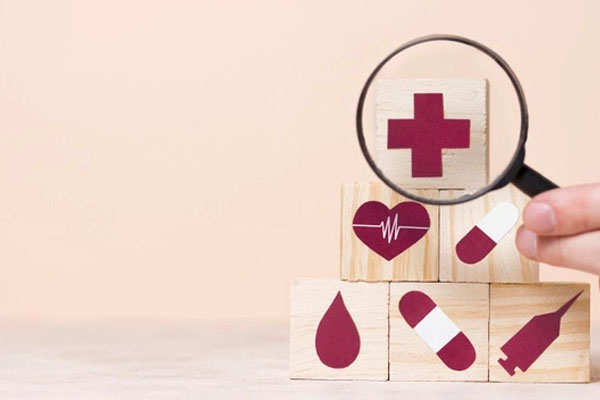
The truth is, what will give you confidence and turn you into a good health coach is working with clients. You just need one. My recommendation is to find one that resonates with you and do it because, in the end, it’s getting out there, and working with clients that are going to give you the confidence, experience and expertise. Do one health coaching certification if you need to.
Number two is business mentorship. When you do health coaching certification, you are not going to get any business training. If you do, it will be pretty minimal and there’s a good chance it’s going to teach an outdated strategy for business. You do want to do an up-to-date business mentorship program like Health Coach Accelerator.
I update my program regularly. It’s usually every year or twice a year because the online marketing space is changing all the time. Things that I would tell you to do in 2020, I’m probably not going to tell you to do in 2022. You do want to stay up-to-date with what is working. With a health coaching certification program, they might give you some help but typically, it’s going to be outdated or minor.
A lot of coaches, when they don’t feel confident to get clients, they think, “I need to increase my education to get confident.” It’s not going to give you confidence. What clients want when they are looking for a coach, they want someone who can get people results. If you are out there with four certifications but you have never worked with a client, then they don’t care about the letters behind your name. They care if you can get them a result.
Working with clients is what is going to allow you to get there. Choose one certification, and then sign up for a business mentorship program like Health Coach Accelerator or with another coach who you align with because that is what is going to help you build a successful business because you do need just as much training, if not more, in business and marketing as you do in health.
Private Programs
People want to feel heard and understood. You can only do that if you get to know them and build that relationship with them.
The next question is, “Should I sell a private program or a group program?” This is another great question. It depends on where you are in your business. I’m assuming you are new because you are wondering, “What do I even sell?” If you are new, always start with private coaching. The reason for this is because it’s going to allow you to make money fast. Typically, most coaches who are new want to make money fast and get clients. The fastest way to do that is with private coaching.
You don’t need much infrastructure. You don’t need hosting, launch plan, strategy or any of that because you are selling your knowledge and coaching. It’s very easy to make a sale. The other thing that people don’t realize is it’s the same amount of effort to sell something that is $5,000 versus $500. People think that if you go for a lower price point, it will be easier to sell. It actually can get more difficult to sell. A big reason for that is based on the level at which people are investing themselves.
Someone who is looking at a $5,000 program has probably already invested $2,000 into themselves, for the most part. As you invest in yourself over time, you set the bar higher for what you are willing to spend on your personal evolution. Personally, I remember buying a course that was $1,000, and that felt crazy to me. I was like, “I can’t believe I’m going to spend $1,000 on this course.” That set the bar at $1,000, and then the next program I invested in was $4,000. $4,000 was a bit ouchie but I had already invested $1,000, so it was an easy step up. After that, I invested $15,000.
I probably wouldn’t have gone from $0 to $15,000 but I had invested $1,000, $4,000, and then suddenly $15,000. It didn’t feel like such a step. When you are selling something for $500, typically, these people have never invested in themselves and $500 is a huge stretch. They probably haven’t gotten into the habit of investing in themselves. On top of that, you need all the same stuff and level of marketing.
With something that’s $500, you need all the same infrastructure that you do for $5,000. Meaning, you still need a strategy, consistent social media presence, sales marketing, emails, and all of that stuff. It’s the same amount of effort. Plus, you don’t typically have a large following. If you are going to sell a one-to-many program like a group program, you need followers. You need people to sell it to because a good sales conversion is about 5%.
If you only have 30 people on an email list, 5% of 30 is not much. It’s like 1.5 people and that’s not going to build a group program but it could build a one-on-one program. If you sold a one-on-one program for $2,000, suddenly you make one sale and you have $2,000. It takes a long time to build the audience and the presence that you need to launch something like a group program. It can take 6 months or 1 year. It can even take more. In that interim period, you should be working with one-on-one clients, even if your intention is to be solely running a group program or course.
Working with private clients is going to get you confidence. It’s going to teach you a ton about how to make a good group program. It’s going to help you build the audience because you are not going to put the pressure on yourself to build the audience because you are taking one-on-one programs. Once you get your audience to a certain level, where it makes sense to be able to sell something like a group program, you are going to be much better set up for success.
Live Webinars
The next question is, “At what stage should I start running webinars in my business?” This is another question that I get all the time. When we talk about webinars, we always have to think about the numbers. We are talking about live webinars. A good live show-up rate for a webinar is about 25%. That means if 100 people register for your webinar, about 25 will show up live. If we are talking about automated webinars, that’s even less. Typically, you put that in half. If 100 people sign up for a webinar and it’s automated, maybe about 10 to 15 people are going to watch it.
When we think about, “How do we get those people to sign up for the webinar?” typically, a conversion rate on an email list is about 5% to 10%. That means if you have 1,000 people on your email list and let’s say 5% of those people sign up, that means 50 people are going to register for the webinar. You are going to get about 12.5 people showing up live. You have to think about that because if you only have 100 people on your email list and you are able to get 10% of people onto the webinar, it means 10 people register and you get 2 people who show up live.
When we think about sales conversion, typically, a good webinar’s sales conversion is about 10%. I have seen people get it as high as 50% but that comes with a lot of testing over time. Let’s keep it on the lower end because you are probably new that has no sales. In order for webinars to be successful, either you have to have a big enough list. I would say 1,000 is a good number and 500 is probably a good benchmark. I would probably not go lower than 500 people on the list.
You need a consistent source of traffic. That would be advertising, something like Facebook ads. These days, cold traffic to a webinar is tricky. Typically, people are going to need a little bit more time to warm up to you. You could grab people from ads, put them onto a webinar and there’s a good chance it won’t turn into a sale. Webinars will work best when you promote them to a warm audience, meaning your email list. It’s people who are in your world. They are reading your emails and getting to know you. They like and trust you.
When we start talking about automation, you need a pretty heavy traffic source. With ads, that can be tricky and definitely something that a lot of people struggle with. I’m a big fan of running webinars for your warm traffic, which is your email list. This is something that I have done in my business. I have about 5,000 people on an email list. Typically, I get about 300 people signing up for my webinars.
That’s about that conversion that we talked about. It’s about 5,000 people and about 300 people will register. I typically get maybe around 50 to 75 people who show up live and get that 25% show-up rate. We have to think about the numbers because webinars are a lot of work. You need to onboard people. You need to promote it. You need an after-webinar sales sequence. You have to do the webinar properly. You want to make sure that you have the traffic to be able to make that effective.
This is something that I’m working on in 2022. I’m going to be making a mini-course on how to use webinars in your business, whether you are selling group programs, a course or one-on-one coaching. This will be a little bit for the people who are a little bit further along and a little bit more advanced. That’s something that I will have available for you in 2022.

The Signature Program
The final question is, “Can you explain a bit more about the signature program? You say it’s critical but I know someone who does well selling individual sessions.” I’m a big fan of signature programs. What a signature program is for those who don’t know is rather than selling a single session and trading time for money like, “You give me $100. I give you an hour session,” you are selling a collection of session-support accountability. It’s this experience that you are selling. It’s a one-off session versus this experience.
The reason why signature programs are powerful is that it’s a lot less work for you to go find the clients because you are selling them at a higher price point. For example, you might start selling your signature program at around $1,000 versus selling a $100 session. People are paying a higher price point, which means they are going to be more committed and they are committing to a longer time. Maybe it’s 90 days, 4 months, 8 weeks or whatever. They are committing to the time that you think is appropriate to get them the result.
Inside the program, they are getting all the accountability and support they need. As you hopefully know, the main reason why people don’t get results with their health is that there’s no one holding them accountable and they are not getting support. When people are left to their own devices, it’s typically a lot more challenging than if they were to have support from a mentor.
I believe in 2022 that it’s absolutely critical to have a signature program. I don’t think selling one-off sessions or packages of sessions will work anymore. This person who you know, I’m curious when they started their business because there’s a good chance it was not a recent start of a business. The other thing I will say is there’s always going to be an outlier. It’s someone who is doing the thing that is apparently impossible.
When people are left to their own devices, it’s a lot more challenging than if they were to have support from a mentor.
What I want you to think about is the type of business that you want because if you are selling one-off sessions, are you getting people the results that they want? Typically, when we are doing one-off sessions, some people are self-motivated. They can take things and run with them but there are a lot of people who can’t. If we want to get people a deep, impactful transformation, then you can’t do that with a one-off session because if somebody books one session with you, they are not going to get a result.
The other thing is you have to think about your energy because if you are selling $100 a session, that’s 50 clients a month. You have to be selling 50 sessions a month. That’s a lot and because you are not getting an upfront commitment from your client, that might be 50 new clients every month. If you are unlicensed, that’s going to be hard to do that.
A lot of licensed naturopaths can do this because people’s extended health will cover the appointment. They can get clients because people are going to seek them out because they want to not have to pay. I know a lot of naturopathic doctors that are doing that business model and they are absolutely burnt out. It’s because you are juggling hundreds of clients at once, you cannot keep track of hundreds of clients. I don’t care who you are. That’s impossible.
The client experience goes down and you don’t get to know the client. I know that a lot of you value intimacy and I value some level of intimacy in my programs as well. Even though my Health Coach Accelerator Program is not a one-on-one program, I keep it relatively small because I want to know the people who are in it. I want to understand their business. Every time I see them asking a question, I want to have some level of knowledge of past questions that they have had.

That’s why a signature program is valuable. It’s not only valuable for the client and their experience but it’s also valuable for your experience of how you run your business. If you want to make $10,000 a month and you sell a signature program that is $2,500, that is four clients a month and is completely realistic. You can find four clients a month and let’s say it’s a 90-day program. That means that at any given time, you are only juggling twelve clients. That is way more realistic than hundreds.
Thank you so much for reading this episode. If you have been with me since the beginning, I appreciate that you are here. Thank you so much for coming along for this ride. If you love this show, please do leave me a five-star review on iTunes. I read all of them. I truly appreciate it. I look forward to talking to you on the next episode, same time and place, where I help you become wealthy AF.
Important Links:
- iTunes – The Wealthy Coach
- Instagram – Kendra Perry Inc
- Cat TV YouTube
- Health Coach Accelerator
- Group Program Academy
- https://Bit.ly/signatureprogramrx
